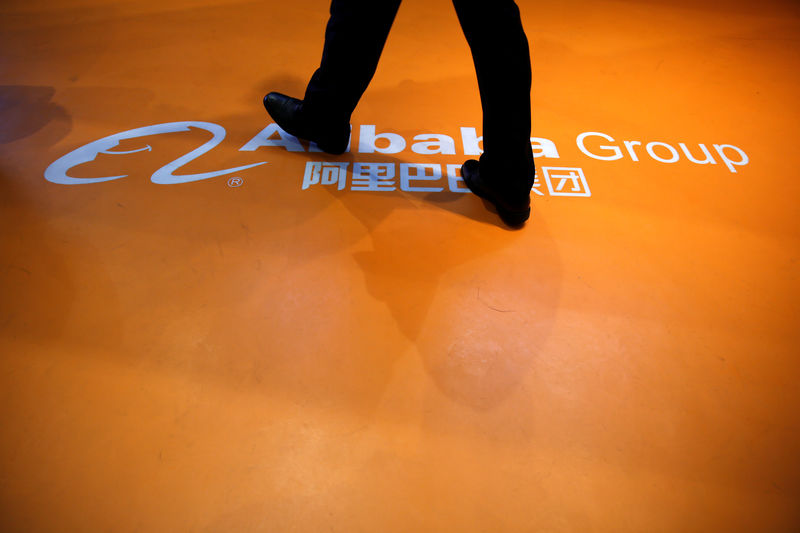© Reuters. JD.com Triumphs Over Alibaba in Pivotal Antimonopoly Lawsuit
Quiver Quantitative – In a landmark ruling for China’s e-commerce industry, JD.com (NASDAQ:), a major online retailer, has emerged victorious in an antitrust lawsuit against its competitor Alibaba Group (NYSE:). The High People’s Court of Beijing fined Alibaba 1 billion yuan (approximately $140.68 million) for engaging in monopolistic practices that significantly hampered JD.com’s business operations. This decision follows a previous record fine of $2.75 billion imposed on Alibaba in 2021 by Chinese regulators for similar market dominance abuses.
The court found Alibaba, along with its subsidiaries Zhejiang Tmall Network Co and Zhejiang Tmall Technology Co, guilty of a practice known as “choosing one from two.” This practice involved pressuring brands and merchants to work exclusively on their platform, thereby limiting competition and choices in the marketplace. JD.com, in its official statement, hailed the ruling as a significant step in enforcing market fairness and promoting competitive order through legal means.
Market Overview:
-JD.com wins landmark lawsuit against Alibaba in China, securing a billion-yuan fine for monopolistic practices.
-Court ruling condemns “choosing one from two” tactic, favoring market fairness and competition in the e-commerce landscape.
-Verdict follows years of tensions between the two e-commerce behemoths, highlighting China’s ongoing regulatory crackdown on tech giants.
Key Points:
-JD.com claims severe damages from Alibaba’s dominant market tactics, leading to a hefty fine and potentially setting a precedent for future antitrust cases.
-Beijing court affirms commitment to fair competition and rule of law, potentially signaling increased scrutiny for monopolistic behavior in the digital sphere.
-Both companies have historically engaged in the “choosing one from two” strategy, pressuring brands and merchants into platform exclusivity, but JD.com’s victory marks a turning point.
Looking Ahead:
-Verdict likely to reverberate across China’s tech sector, prompting additional companies to re-evaluate their business practices and compliance with antitrust regulations.
-Increased competition in the e-commerce market could benefit consumers with wider choices and potentially lower prices.
-Further regulatory action and legal battles related to antitrust concerns can be expected as digital monopolies face tighter scrutiny and pressure to adapt.
Alibaba, acknowledging the court’s verdict, expressed respect for the decision. This development marks a pivotal moment in China’s anti-monopoly legal process, potentially setting a precedent for future cases in the rapidly evolving digital economy. The lawsuit and its outcome underline the Chinese government’s ongoing efforts to regulate and ensure fair competition among tech giants in the country.
This article was originally published on Quiver Quantitative
Read the full article here



